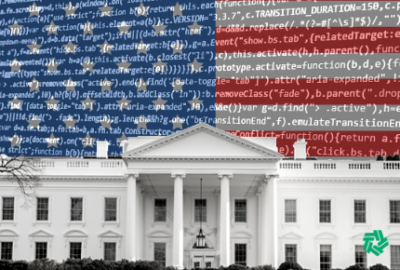The incoming director of the Alliance for Digital Innovation is planning to advocate for “smart” cyber and supply chain security policies, as well as continuing the organization’s advocacy for a consistently funded Technology Modernization Fund.
ADI announced Ross Nodurft as its new executive director today. He is replacing Matthew Cornelius, who left ADI in June to join Sen. Gary Peter’s (D-Mich.) office as a senior professional staff member.
Nodurft said the alliance will play an important role in public policymaking moving forward, as many of its members in the cloud-based technology sector have become major contributors to agency missions during the pandemic.
“We’ve seen a movement towards a more digitalized public sector experience,” Nodurft said in an interview. “And I think that it has been moved forward aggressively over the last couple years, and then we’re not looking back. It’s not as though the pandemic and people needing to work from home or people needing to interact with government from virtual environments is going to just recede.”
ADI describes itself as “an association of commercial companies helping to shape innovation in government.”
The organization is chaired by John Wood, chief executive of the IT and cybersecurity contractor Telos. Its board of directors include representatives from Amazon Web Services, Google, Salesforce, VMWare, Splunk, Zscaler, and Palantir, among other companies.
Nodurft is joining ADI after nearly three years as senior director of cybersecurity services at Venable. From 2015 to 2017, he served as chief of the cyber team in the White House Office of Management and Budget. He also served as a staffer in the Senate, including as senior policy advisor from 2013 through 2014 to then-Sen. Mary Landrieu (D-La.) when she was chairwoman of the Homeland Security Appropriations Subcommittee.
ADI has been a big booster of the Technology Modernization Fund, which received $1 billion through the American Rescue Plan earlier this year. The fund could also get an additional $250 million from the Build Back Better plan currently being debated in Congress.
Agencies submitted more than 100 proposals in the wake of the funding boost. In September, the TMF Board announced six awards worth about $311 million to four agencies, along with a seventh, classified award which did not come with a funding disclosure.
“I think that we need to really make sure that the TMF is fully funded, fully staffed to execute,” Nodurft said. “But also that it’s staffed with the people who understand the roles that modern, cloud-based technology plays in really driving some of the missions forward in meaningful ways.”
Nodurft also said alliance will “advocate for smart cybersecurity policies and practices and programs” that move away from the “bolted on security that happened 10-15 years ago.”
The Biden administration has carried over an intense focus on the security of the information and communications technology supply chains from the Trump administration. The Commerce Department is currently developing a report on the ICT supply chain slated for release in February.
Nodruft said ADI supports supply chain security, but wants to ensure security policies don’t hinder commercial technology adoption in government.
“I think that ADI is really going to make sure that we really are doing what we need to do from a supply chain security standpoint, while at the same time making sure that we are still doing what we have to do to accelerate the acquisition of those technologies,” he said. “I think we can walk and chew gum at the same time.”
Copyright
© 2024 Federal News Network. All rights reserved. This website is not intended for users located within the European Economic Area.

